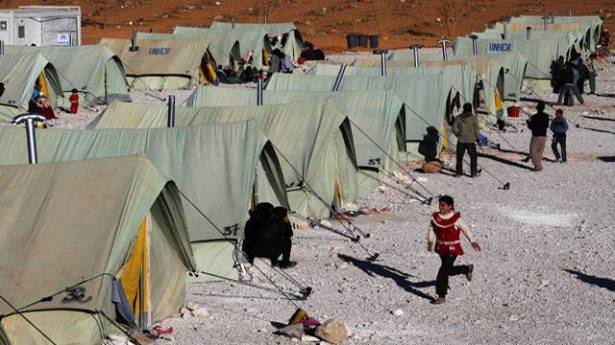Lebanon and Jordan may collapse under a new wave of refugees
Dr. Azeem Ibrahim/Al Arabiya/June 26/16
While Europe is tearing itself apart politically over a refugee crisis that they could easily handle if they agreed to work together, the countries which have done the actual heavy lifting in helping with the situation are genuinely suffering. Turkey has been becoming more and more unstable over the past year. Much of that to do with a renewed Kurdish insurgency prompted by Ankara’s approach to Syria, but having to deal with upwards of 2.7 million refugees is certainly putting the resources of the Turkish state under strain. And much more worryingly, Jordan and Lebanon are creaking at the seams and may collapse under the weight of refugees.
Lebanon in particular has taken in between 1 and 1.5 million, in a country of less than 5 million – upwards of one fifth of the people in that country are now Syrian refugees, a larger proportion than anywhere else. And in a country with its own very troubled history of sectarian infighting, the pressure is starting to take its toll. So much so, that they no longer let Syrians in the country unless they can prove that they will move onto somewhere else next. As we speak, the Syrian so-called “ceasefire” is melting away, and renewed violence may yet see another surge in refugee numbers. Even as in recent weeks more and more Syrian refugees have started contemplating heading back home in the war zone, as the situation in the refugee camps have deteriorated to where they are barely survivable.
Syria’s neighbors
But all this is hardly making the news in the West. And it should. Amid the media kerfuffle and the rise of xenophobic nationalism in the EU, what is being missed is that Europe is having to deal with a negligible burden compared with Syria’s neighbors, and that if the situation carries on like this, we’ll not only have to cope with Syrian and Iraqi refugees, but before long, Lebanese too. Amid the media kerfuffle and the rise of xenophobic nationalism in the EU, what is being missed is that Europe is having to deal with a negligible burden compared with Syria’s neighbors. Perhaps Jordanian and Kurdish on top, not long after. The countries of Eastern Europe have acted shamefully in this regard, and are in effect shoving their heads in the sand over what is to come. Britain and Denmark too. The initial response of Germany and Sweden, unlike it has been described in Western media, has been no more than a proportional response in the right direction, given the magnitude of the problem.
It was not over-the-top generous. It was what was required by the humanitarian situation – and also by the demographic problems that those countries have. But even there, reactionary forces have since blocked further action. Strangely enough, for all there is to loathe about Turkish President Erdogan, in this situation he has done more than anyone for the refugees. More, even, than Angela Merkel. The Turks have invested billions of dollars in building facilities for the refugees – facilities I have visited myself in 2013, when I got a private tour by Governor Dalmaz, the PR special representative for Syrian refugees, to see some of them. The cauldron of violence in Syria and Iraq is still boiling over. And it will continue to spill over waves of refugees for some time to come. Before long, if nothing is done, the countries who have borne most of the humanitarian burden may soon be destabilized themselves, aggravating the refugee crisis beyond our worst nightmares. How much longer will we contend to navelgaze about pitiful numbers in our economies which can easily absorb these people, while we stand idly by and allow the root causes of this crisis to get worse and worse?
Because as far as genuine solutions are concerned, we have nothing. No substantial plan to stem the conflict in Syria and Iraq. No plan to help Turkey, Lebanon and Jordan to cope with the financial stresses of the effort they are putting in. No plan to take some of the burden off them by taking in more refugees than those who can make it to our shores by boat. Nothing. And if we choose to be complacent about the consequences because Lebanon and Jordan are countries far away, keep in mind which country is next in line on the brink of collapse, immediately after them: Greece.






















